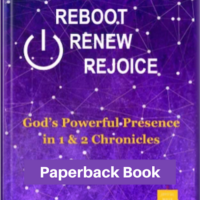2 Chronicles 26-28 • Subdue That Boastful Pride of Life

AI was not used to generate this post.
The boastful pride of life is an always tempting facet of life on planet earth. A love of the world and the world system exalts us in our thinking and offers us the illusion of having God-like qualities so that we boast in arrogance, worldly wisdom, and self-dependence. Those never bring about good results. In the last post, we looked at the deception of half-hearted obedience. This is post #10 in the Chronicles blog series. In this article, we will see how depending on God will subdue that boastful pride of life that tempts every human. Uzziah is our example.
Key Takeaways
- Uzziah started his reign successfully by seeking God, but pride led to his downfall.
- He disregarded God’s commands by entering the Holy Place, resulting in severe consequences.
- Uzziah’s son Jotham learned from his father’s mistakes and remained faithful to God.
- Despite Jotham’s faithfulness, his son Ahaz rejected God, leading to wickedness and idolatry.
- The article emphasizes depending on God as a way to overcome the pride of life, which Uzziah exemplified.
Listen to this post as a similar podcast from our Reboot Renew Rejoice Bible Study covering the books of 1 and 2 Chronicles in the Old Testament. (11 lessons)
Our God is so gracious in holding each person accountable for her own sin and not for the sin of her father or mother. Thank you, Lord! However, what is modeled by the parent almost always shows up in the daughter or son—eventually. This was the case in King Uzziah’s life.
Uzziah Started on the Right Track
Uzziah was sixteen when he became king and started his reign by doing what was right in the eyes of the Lord just as his father Amaziah had done. This is how the Bible describes his early years:
He sought God during the days of Zechariah, who instructed him in the fear of God. As long as he sought the Lord, God gave him success. (2 Chronicles 26:5)
Zechariah was a godly priest.As long as Uzziah sought the Lord, God gave him success. That is what God asks from us as well—to seek Him in faith. It sounds pretty easy, doesn’t it? But our boastful pride of life gets in the way.
Uzziah was a very active king, working hard to benefit his nation. Like Solomon, Uzziah was a builder. He improved farming practices in his country because he loved the soil. He supplied his army well from the national armory. And he hired engineers to design and build better defenses for the walls around the capital city Jerusalem.
Uzziah built towers in Jerusalem … and he fortified them. He also built towers in the wilderness and dug many cisterns, because he had much livestock in the foothills and in the plain. He had people working his fields and vineyards in the hills and in the fertile lands, for he loved the soil. Uzziah had a well-trained army, ready to go out by divisions according to their numbers … a powerful force to support the king against his enemies. … In Jerusalem he made devices invented for use on the towers and on the corner defenses so that soldiers could shoot arrows and hurl large stones from the walls. His fame spread far and wide, for he was greatly helped until he became powerful. (2 Chronicles 26:9-11, 13, 15)
All that building and inventing success opened the door for the boastful pride of life to rear its ugly head. Uzziah started believing his own press clippings. He also believed the lie that he was the author of his success. The Bible says that after Uzziah became powerful, his pride led to his downfall.
Pride Led to His Downfall
Prideful action
In one hour, Uzziah ruined a prosperous lifetime as a successful king. This is what happened:
But after Uzziah became powerful, his pride led to his downfall. He was unfaithful to the Lord his God, and entered the temple of the Lord to burn incense on the altar of incense. Azariah the priest with eighty other courageous priests of the Lord followed him in. They confronted King Uzziah and said, “It is not right for you, Uzziah, to burn incense to the Lord. That is for the priests, the descendants of Aaron, who have been consecrated to burn incense. Leave the sanctuary, for you have been unfaithful; and you will not be honored by the Lord God.” Uzziah, who had a censer in his hand ready to burn incense, became angry. While he was raging at the priests in their presence before the incense altar in the Lord’s temple, leprosy broke out on his forehead. (2 Chronicles 26:16-19)
Uzziah disregarded God’s instructions for who can enter the Holy Place of the temple. That means he went inside the temple doors to the first room where the lampstand, table of show bread, and altar of incense were located. The temple belonged to God. God made the rules. Only consecrated priests and Levites could go inside the Holy Place. Uzziah knew this truth. Yet, he went in anyway to burn incense on the altar of incense. The Bible says that act was being unfaithful to the Lord his God.
Then eighty-one priests confronted him! They must have been horrified. Well, Uzziah got angry because they were trying to get him out of the Holy Place quickly.
God was not too happy with Uzziah’s actions so while he was raging at the priests, probably making excuses for his behavior, the Lord afflicted him with a horrible skin disease called leprosy. These white, scaly skin splotches broke out on his forehead. This was bad and very noticeable. There is no way that Uzziah could not know that God was getting his attention with this instant consequence to his public disobedience as a leader!
Lack of repentance
Sadly, we do not see any repentance in Uzziah. He just hid himself away for ten years. Maybe he stayed angry at the Lord and did not seek healing. We saw how his ancestor Asa and his grandpa Joash had both become angry and bull-headed when reprimanded by God for a bad decision they made.
Uzziah got a long “timeout” for his bad behavior. Having leprosy removed Uzziah from public influence. Now he could not even go to the temple courts. And he was not buried in the kings’ tomb with David’s other descendants. What a way to ruin a life with boastful pride!
The Strong Pull of the Pride of Life
Jotham’s faithfulness
At the age of sixteen, Uzziah’s son Jotham became a co-ruler with his dad during those ten years of “timeout.” Thankfully, Jotham did not follow his father’s bad example. In fact, he learned from it.
The Bible says in 2 Chronicles chapter 27,
[Jotham] did what was right in the eyes of the Lord, just as his father Uzziah had done, but unlike him he did not enter the Temple of the Lord. (2 Chronicles 27:7)
For ten years, Jotham had seen the consequences of his father’s sin and that ever-present leprosy. He must have determined in his heart not to do that sin of pride and rage. He grew powerful as a king because he walked steadfastly before the Lord his God (2 Chronicles 27:6). He had the power of God’s presence with him. He embraced God’s presence.
Yet, though he was walking faithfully with God, Jotham was not able to lead his people spiritually to give up their corrupt practices. The people were still using hilltops to supposedly worship God with their own sacrifices. However, this had degraded into inclusion of Baal worship alongside worship of the Lord.
It had been 300 years since David lived. During that time, how many kings that we have studied tried to remove the high places only to have them show up again when the pressure was off? A bunch of them. They tried to do it. But it is so hard to root out bad traditions very much like today’s practice of incorporating the surrounding culture into the church. It looks harmless, but it is not.
Sadly, Jotham did not live very long. During his last three years as king, his son Ahaz was the acting king. But equally as sad, Jotham did not raise his son to be faithful to God.
Ahaz’s wickedness
Reading 2 Chronicles chapter 28, you see quickly that Ahaz was very, very wicked!
He followed the ways of the kings of Israel and also made idols for worshiping the Baals. He burned sacrifices in the Valley of Ben Hinnom and sacrificed his children in the fire, engaging in the detestable practices of the nations the Lord had driven out before the Israelites. He offered sacrifices and burned incense at the high places, on the hilltops and under every spreading tree. (2 Chronicles 28:2-4)
Making idols for Baal worship was bad. But sacrificing his own children to those idols? That was awful! The God of the Bible never asked or even wanted His people to do that. In fact, He forbid it!
Why did Ahaz do that? What would make a man do that?! Was it to go along with the people rather than fight against them? If so, that made him a bad leader. I am wondering who his mother was, perhaps one of those foreign idol-worshiping women. As we have seen throughout this blog series, it matters who your mama is.
We learn a possible reason for his behavior from the prophet Isaiah. Isaiah spoke God’s words to the people of Judah during the lives of Uzziah, Jotham, Ahaz, and Hezekiah. According to Isaiah chapter 7, three foreign kings had plotted to attack and destroy Judah. The Bible says that when the house of David was told about the imminent attacks, this is what happened.
The hearts of Ahaz and his people were shaken, as the trees of the forest are shaken by the wind. (Isaiah 7:2)
Ahaz was afraid. He panicked. So, God told Isaiah to give Ahaz this message,
Be careful, keep calm and don’t be afraid. Do not lose heart… (Isaiah 7:4).
In spite of Ahaz’s wickedness, God showed His grace to Him.
Yet this is what the Sovereign Lord says: “It will not take place, it will not happen, … If you do not stand firm in your faith, you will not stand at all.” (Isaiah 7:7, 9)
God said that what those kings plotted would not take place. It would not happen. So, stand firm in your faith, Ahaz. He had the power of God’s presence with him if he would just keep depending on God.
Then the Lord told Ahaz to ask Him for a sign. Ahaz refused, but God gave him a sign anyway. You know what sign God gave him? It is the one we read at Christmas every year.
The virgin will conceive and give birth to a son, and will call him Immanuel. (Isaiah 7:14)
Immanuel means God with us. Ahaz had God’s presence with him. He just needed to stay depending on God rather than become afraid.
Ahaz’s rejection of God’s grace
But Ahaz intentionally rejected God’s help and went from horrible to worse! The Lord lifted His hand of protection from Judah so enemies attacked. This was to humble the king and draw him back to God.
Yet, in his time of trouble, King Ahaz became even more unfaithful to the Lord. He offered sacrifices to the gods of Assyria, trying to get on the good side of the king of Assyria who was breathing down his neck. Ahaz shut the doors of the Lord’s temple! He set up altars at every street corner in Jerusalem. In every town in Judah, he built high places to burn sacrifices to other gods and provoked the Lord, the God of his fathers, to anger.
Ahaz’s boastful pride of life ran his life and directed his decisions. He did no one any good, least of all himself. The officials of Jerusalem must have hated him for closing the temple. When he died, he was not buried with the other kings. There may have been no regret when he died. That is the legacy of letting the boastful pride of life take control of your heart and direct your decisions. The result is never good!
Depending on God Subdues the Pride of Life
Do not rely on the world
The boastful pride of life is not just an Old Testament king thing. It is an always tempting facet of life on planet earth. Jesus’ disciple John wrote about it in 1 John chapter 2. This is what the Bible says,
Do not love the world or anything in the world. If anyone loves the world, love for the Father is not in them. For everything in the world—the lust of the flesh, the lust of the eyes, and the pride of life—comes not from the Father but from the world. The world and its desires pass away, but whoever does the will of God lives forever. (1 John 2:15-17)
Anything that produces the pride of life comes from a love of the world.
A love of the world and the world system exalts us in our thinking above our rightful place of God-dependence. It offers us the illusion of having God-like qualities so that we boast in arrogance, worldly wisdom, and self-dependence. We fall under the deception of having control of our lives and those around us. That desire for control takes us away from God not toward Him. We rely on our academic knowledge and those initials before and after our names that indicate success in this world. The God-Dependent Woman Bible Study deals with this problem of self-dependence.
Rely on the Lord
In the midst of even successful lives, God wants us to learn to rely on Him more than on ourselves. If you are a woman who has been reared in western culture, this is contrary to what you have been taught most of your life. To compensate for poor teaching in the past, women are taught from girlhood to “stand on your own two feet” and that “you don’t need anyone to be successful.” So, what does this relying on God look like?
Are we as Christians supposed to stay like babies not doing anything for ourselves? Does it mean we are supposed to just lie back and let anything happen to us? Does it mean we are not supposed to use our skills, talents, advantages, and opportunities to be the best we can be? No! That is not what it means.
We are supposed to grow and mature in our thinking and behavior. God wants us to give to Him all the skills, talents, advantages, and opportunities and use them for His glory. That involves following His leading and guidance. It means submitting our strengths and our weaknesses to Him for His purposes in our lives.
Here is a key truth:
Human parents raise their children to be less dependent on them and more independent. But God raises His children to be less independent and more dependent on Him. Whatever He brings into our lives that makes us more dependent upon Him is good for us.
The key to being a God-dependent woman is dependent living.
Dependent living
Dependent living is not weakness. It is being stronger and having more influence, success, and satisfaction than we could ever have through our own efforts—as brilliant and self-sufficient as we think we are or as weak and messed up as we think we are or anywhere in-between.
We learn how to do this as we act in obedience to the Word of God, depend on Jesus Christ for the power to do so, and trust Him with the results. This “dependent living” will make us stronger and more effective in life than we could ever be on our own. Why? It is because we have the power of God’s presence at work in us and for us. Only depending on God will subdue that boastful pride of life.
Our God’s powerful presence helps us to reboot our lives, renew our commitment to Him, and live a life of rejoicing as a result. Why not depend on Him?
Let Jesus satisfy your heart with the power of His presence. Then, live in that power!
Read all the articles in our 1 and 2 Chronicles series. In the next post, we will see the unstoppable power of God’s forgiveness.
All of the above information is covered in the Reboot Renew Rejoice Bible Study of 1 and 2 Chronicles.
AI was not used to generate this post.


